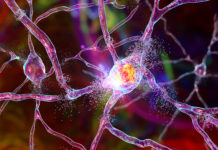 The risk of stroke may be much higher in people with insomnia compared to those who don’t have trouble sleeping, according to new research in the American Heart Association journal Stroke.
The risk of stroke may be much higher in people with insomnia compared to those who don’t have trouble sleeping, according to new research in the American Heart Association journal Stroke.
The risk also seems to be far greater when insomnia occurs as a young adult compared to those who are older.
The findings were revealed when researchers compared randomly-selected health records of more than 21,000 people with insomnia with those of 64,000 non-insomniacs in Taiwan.
The researchers found:
- Insomnia raised the likelihood of subsequent hospitalization for stroke by 54 percent over four years.
- The incidence of stroke was eight times higher among those diagnosed with insomnia between 18-34 years old. Beyond age 35, the risk continually decreased.
- Diabetes also appeared to increase the risk of stroke in insomniacs.
“We feel strongly that individuals with chronic insomnia, particularly younger persons, see their physician to have stroke risk factors assessed and, when indicated, treated appropriately,” said Ya-Wen Hsu, Ph.D., study author. “Our findings also highlight the clinical importance of screening for insomnia at younger ages. Treating insomnia is also very important, whether by medication or cognitive therapy.”
Researchers divided participants — none of whom had a previous diagnosis of stroke or sleep apnea — into different types of insomnia, including difficulty initiating or maintaining sleep; chronic or persistent insomnia lasting one to six months; relapse after being diagnosed free of insomnia for more than six months; and remission of insomnia to non-insomnia.
During the four-year follow-up, 583 insomniacs and 962 non-insomniacs were admitted for stroke. Persistent insomniacs had a higher three-year cumulative incidence of stroke compared to the other participants in the remission group.
The mechanism linking insomnia to stroke is not fully understood, but evidence shows that insomnia may alter cardiovascular health via systematic inflammation, impaired glucose tolerance, increased blood pressure or sympathetic hyperactivity. Some behavioral factors (e.g., physical activity, diet, alcohol use and smoking) and psychological factors like stress might affect the observed relationship.
“Individuals should not simply accept insomnia as a benign, although difficult, condition that carries no major health risks,” Hsu said. “They should seek medical evaluation of other possible risk factors that might contribute to stroke.”
Source: Ming-Ping Wu, Huey-Juan Lin, Shih-Feng Weng, Chung-Han Ho, Jhi-Joung Wang, and Ya-Wen Hsu. Insomnia Subtypes and the Subsequent Risks of Stroke: Report From a Nationally Representative Cohort. Stroke, April 2014 DOI:10.1161/STROKEAHA.113.003675














